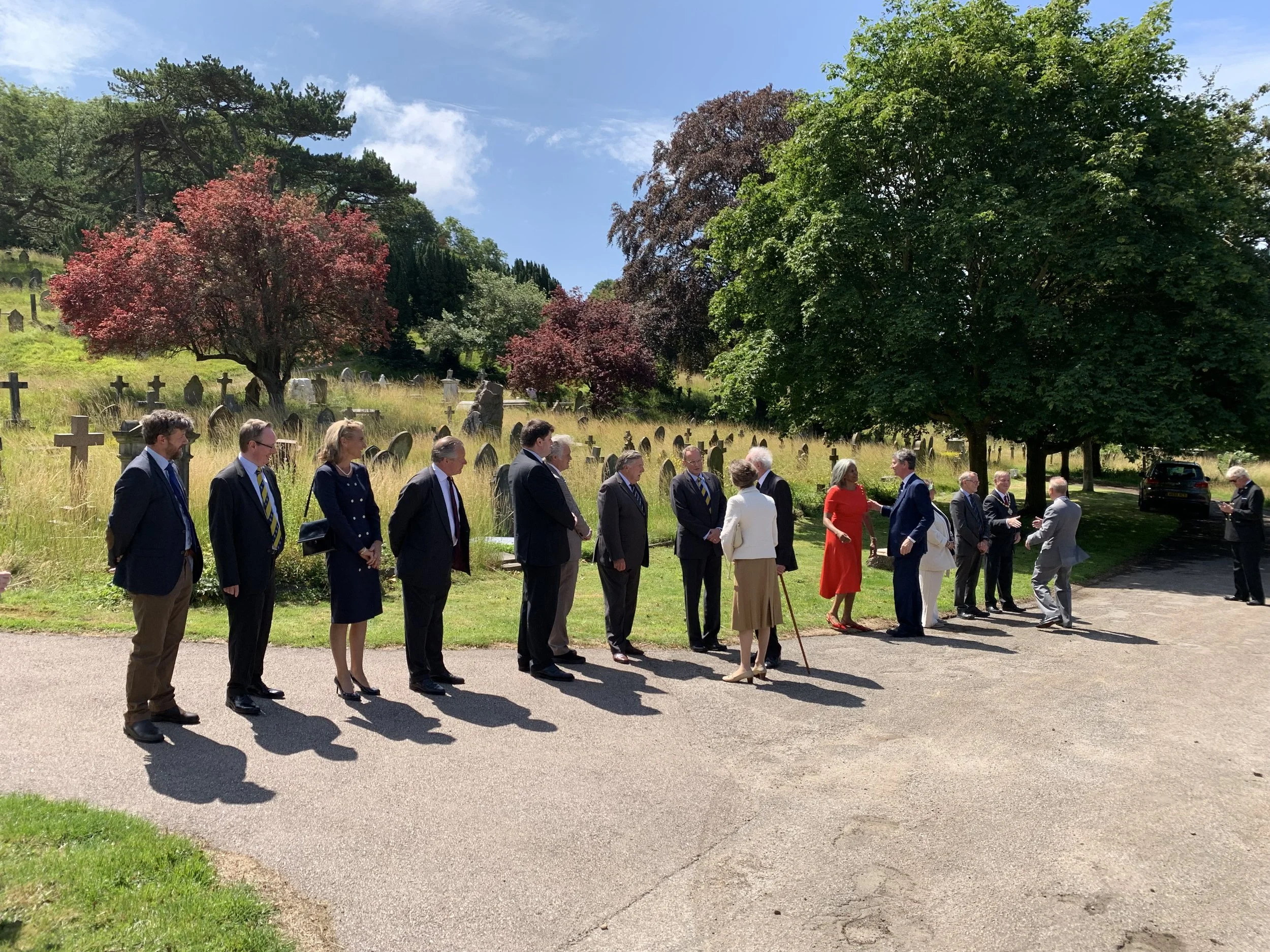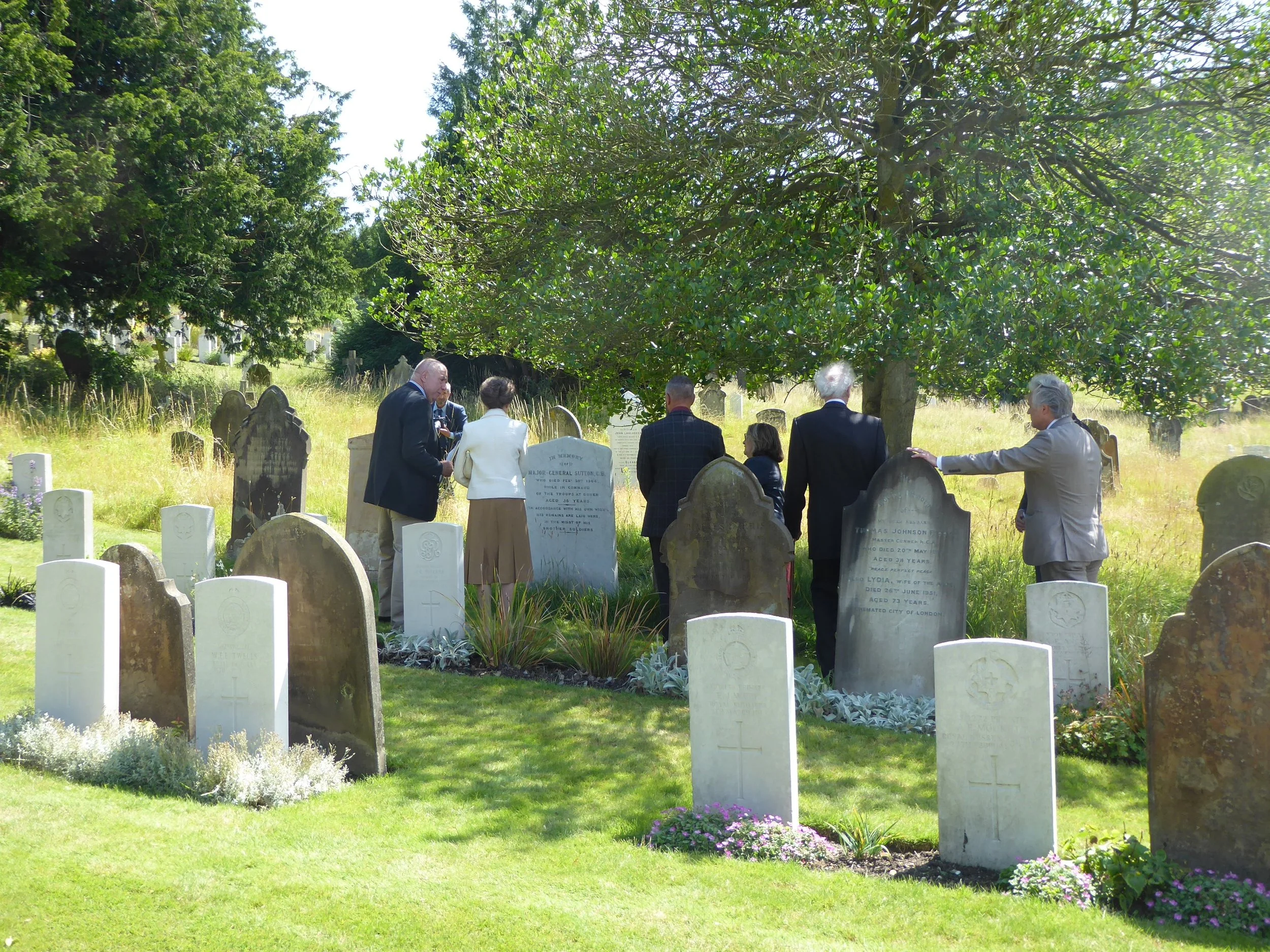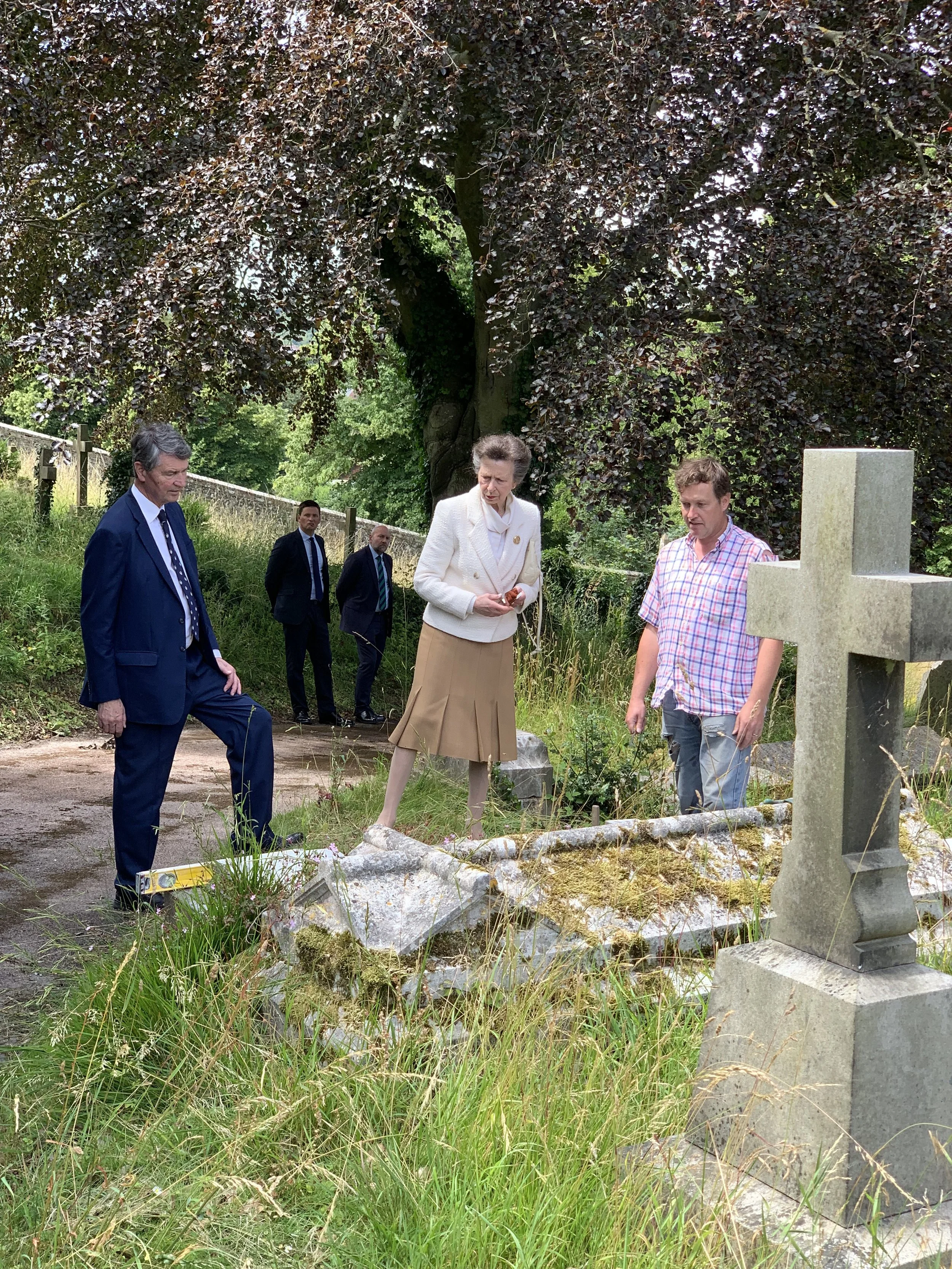St. James’s Cemetery
Dover, Kent
Royal Visit
In August 2023, The Remembrance Trust welcomed our Patron, HRH Princess Anne, and her husband Admiral Sir Tim Lawrence, to St. James’ Cemetery in Dover, where the Trust has funded and carried out several restorations. The Princess Royal and Sir Tim met the volunteers and Trustees of the Charity, local digintaries and the masons who have carried out the restoration works.
The Princess Royal and Sir Tim meeting the trustees of the Remembrance Trust
The Princess Royal inspecting the grave of Major-General Sutton
The Princess Royal and Sir Tim inspecting Mr. Gwilliams’ work on the grave of Colonel Colquhoun Grant
The Restorations
William House V.C. (1879-1912)
William House was born in Thatcham, Berkshire on 7th October 1879. His parents were Thomas House and his wife Sarah. He joined the 2nd Battalion of the Royal Berkshire Regiment as a private, being promoted to Lance Corporal. During the Second Boer War, on 2nd August 1900, during action at Mosilikatse Nek, South Africa, he attempted to rescue wounded sergeant under heavy fire, going against advice to do so. He was wounded in the effort, but implored his comrades not to rescue him due to the heavy fire. He was gazetted on 7th October 1902 with the Victoria Cross. After his experiences in South Africa, he went on to serve in India. His experience in India reportedly had a negative effect on him, with his comrades reporting a changed man who returned. Where he was once talkative and became prone to boughts of depression. He committed suicide on 28th February 1912, a morning when he was still due to drill recruits, having been unwell in the days before his death. The inquest into his death concluded that he had committed suicide during temporary insanity. He originally was buried with no headstone, but one was erected by his old regiment in 1994.
Restored by Steve Davies, with research by David Wells
Before
After
Before
After
William McWheeney V.C. (1837-1866)
William was born in Bangor, County Down, Northern Ireland. He became a Sergeant in the 44th Regiment, later known as the Essex Regiment. During service in the Crimean War, on 20th October 1854, Sergeant McWheeney carried a wounded private to safety on his back, whilst under heavy fire. Later, on 5th December he saved the life of a Corporal, rescuing him under heavy fire and even constructing a shelter to provide cover for them until it was safe to move. In 1855 he also volunteered for an advance guard. He was also noted to have never missed a turn of duty during the whole war. For these actions, he was awarded the Victoria Cross, the very first member of the Essex Regiment to be so. He died on 17th May 1866 and was buried in St. James’ Cemetery, Dover.
Restored by Steve Davis, with Research by David Wells
Charles Wooden V.C. (1829-1876)
Charles Wooden was born on 24th March 1827, in Germany. Little is known of his early life and career. He joined the 17th Lances (Duke of Cambridge’s Own) and became Sergeant Major, later rising to Lieutenant and Quartermaster. During service in the Crimean War, at Balaclava on 26th October 1854 Sergeant Major Wooden went out with Surgeon James Mouat under heavy fire to rescue a seriously wounded Lieutenant Colonel William Morris during the retreat of the Light Brigade after their infamous charge.
In total, Wooden served for over 30 years, with twelve of that number spent in India, with the 104th Bengal Fusiliers. He came to reside on the Dover Heights and died in unfortunate circumstances on 26th April 1876. In the days before he died, he had been complaining of a severe pain in his head. The day before he died his wife sent for the Surgeon Major, Lieutenant Hooper. Wooden was bleeding from both his nose and his mouth and he claimed that he had been attempting to remove a tooth. Hooper found that he had apparently shot himself twice through the roof of his mouth. He had been apparently been drinking heavily beforehand. Despite Hooper’s best efforts, Wooden died the next day, and the inquest decided that the cause of death was suicide as a result of temporary insanity.
Restored by Steve Davies, with research by David Wells
Before
After










